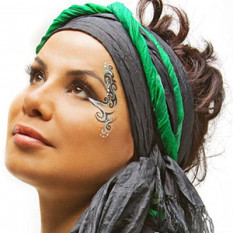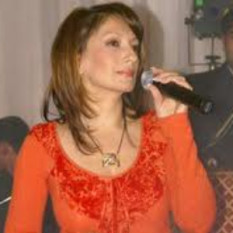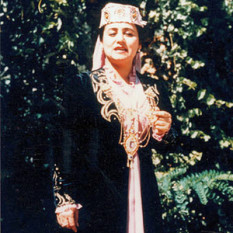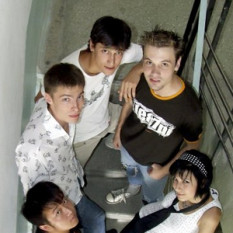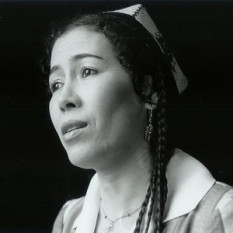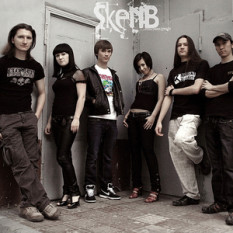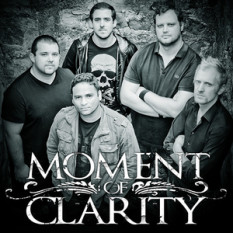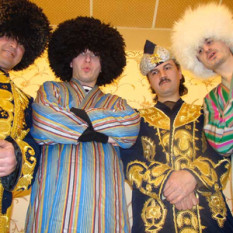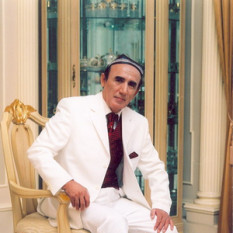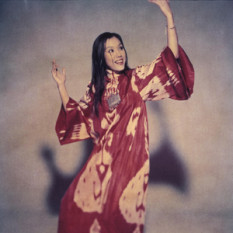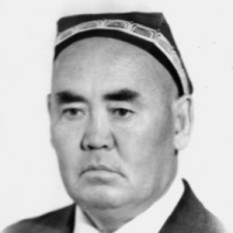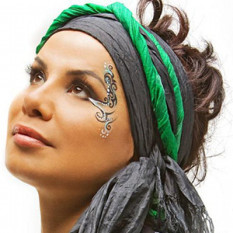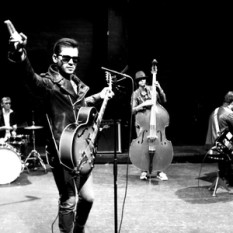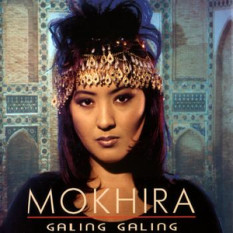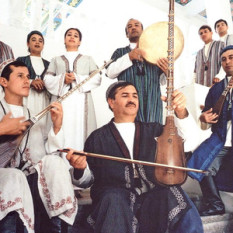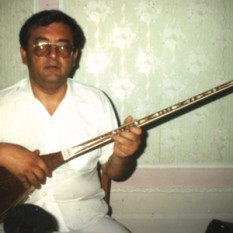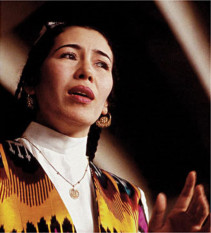Uzbekistan, officially the Republic of Uzbekistan (Uzbek: O‘zbekiston Respublikasi, Ўзбекистон Республикаси) is the only doubly landlocked country in Central Asia and one of only two such countries worldwide. It shares borders with Kazakhstan to the west and to the north, Kyrgyzstan and Tajikistan to the east, and Afghanistan and Turkmenistan to the south. Before 1991, it was part of the Soviet Union. Ethnically and culturally, Uzbekistan is one of the Turkic states in Central Asia.
Central Asian classical music is called shashmaqam, which arose in Bukhara in the late 16th century when that city was a regional capital. Shashmaqam is closely related to Azeri mugam and Uyghur muqam. The name, which translates as six maqams refers to the structure of the music, which contains six sections in different musical modes, similar to classical Persian traditional music. Interludes of spoken Sufi poetry interrupt the music, typically beginning at a low register and gradually ascending to a climax before calming back down to the beginning tone.
Endurance of listening and continual audiences that attend events, such as bazms or weddings, is what makes the folk-pop style of music so popular. The classical music in Uzbekistan is very different than that of the pop music. Mostly men listen to solo or duo shows during a morning or evening meeting amongst men. Shash maqam, which is the main component of the classical genre of music. The large support of the musicians came from high class families, which meant the patronage was to be paid to the Shash maqam above all things. Poetry is where some of the music is drawn from. In some instances of the music, the two languages are even mixed in the same song. In the 1950s, the folk music became less popular, and the genre was barred from the radio stations. They did not completely dispel the music all together, although the name changed to "feudal music". Although banned, the folk musical groups continued to play their music in their own ways and spread it individually as well. Many say that it was the most liberated musical experience in their lives. .

